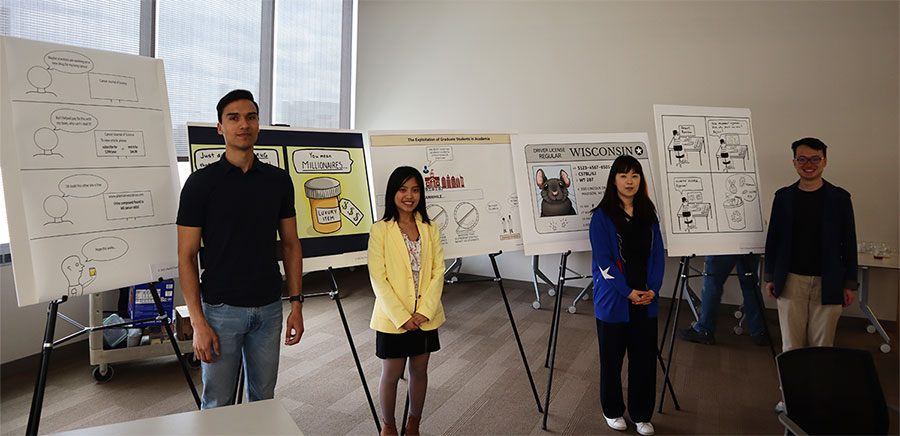What are the ethical tradeoffs of stopping a clinical trial due to a pandemic, when doing so also halts potential medical progress from the trial?
How do researchers navigate consent when studying neurodegenerative diseases such as Alzheimer’s, when a patient eventually cannot grant consent on their own behalf?
As more health studies move to home or remote environments, rather than controlled healthcare settings, how do researchers ensure the data is still reliable?
Just because it’s legal to use some de-identified patient medical records, does that automatically mean it’s ethically sound?
These represent a small fraction of the kinds of questions that reach the desk of Morgridge Ethics Investigator Pilar Ossorio, a UW–Madison professor of law and bioethics. For the past decade, Ossorio has been offering a suite of programs and services to the Wisconsin bioscience community to help address the increasingly complex ethical issues tied to cutting-edge research.
Through her Research Ethics Consultations Service (RECS), launched in 2014, Ossorio has tackled more than 60 inquiries on bioethical concerns large and small. Some of them she describes as “curbside consulting,” where the answers have been well-addressed in the current literature, and she can simply connect scientists to the critical consensus. Then there are other challenges thorny enough to warrant multi-year involvement, and lead to scholarly papers of their own.
Ossorio says the demand has remained quite steady over the years. What’s frequently most satisfying about the work is it not only helps clear certain ethical hurdles, it can ultimately make the science stronger and the results more useful. And it can make research proposals more competitive on the front-end.
“We have fabulous bioethicists in our UW department of medical history and bioethics, and many of them have been willing to devote their expertise to the questions we encounter through RECS,” Ossorio says. “The applied research ethics component of RECS makes us a good partner for the scientific community.”
While the RECS program most often is helping scientists with unforeseen challenges that arise during research, many other groups are seeking Ossorio’s help in the grant writing process.
“At NIH and NSF, a growing number of programs require some attention to ethical, legal and or social issues as part of an application,” she says. “Applicants are often not fully prepared to address that, even when they don’t require it.”
Ossorio says scientists are encouraged to look forward, past the planning and funding stages, to the implementation stage of their research, and see the ethical considerations through the entire course of the work. “The more we become known as a place for applying ethics expertise, even when it’s not required, the more it improves the competitiveness of Wisconsin science.”
When the Morgridge Institute was first chartered in 2006, it contained a few features that are not always evident in independent research institutes. For example, founders made public outreach a core part of the Morgridge mission, and it created a program devoted to the professional development of trainees. Founders also wanted to have bioethics be a topic infused across all research areas, while providing an additional ethics resource for campus partners.

One of the guiding principles of the Bioethics-in-Residence program is “promoting a culture of responsible science,” where it is not a box that gets checked, but an everyday way of thinking about the scientific process. One of the creative ways Ossorio’s team has fostered this is through the annual Bioethics Cartooning Contest, now in its fifth year.
“People often think of research ethics as focusing on what researchers can’t do. It’s framed in the negative, it’s all finger-wagging,” says Ossorio. “We wanted to do something that would bring some humor to the whole subject area, and let people be creative when thinking about their ethical problems and ethical issues that they confront.”
